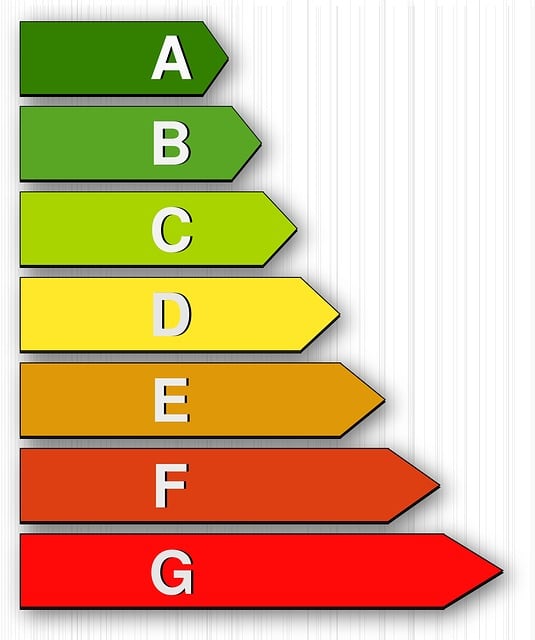Improving organic search rankings requires a multi-faceted approach, encompassing both content strategy and technical SEO practices. Key strategies include keyword research for relevant, high-quality content that engages users and signals trust to search engines. Technical optimizations such as faster loading times, mobile responsiveness, structured data markup, and XML sitemaps enhance visibility. Regular updates, backlink building from reputable sources, and strategic site structure all contribute to boosting rankings. Constant monitoring using tools like Google Analytics is crucial for adapting to the evolving digital landscape and maintaining competitive search engine placements.
Looking to boost your online visibility? Improving organic search results is key to increasing website traffic and establishing a strong online presence. This comprehensive guide breaks down essential strategies to elevate your site in search engine rankings. From understanding the fundamentals of organic search and optimizing your website, to creating compelling content and building valuable backlinks, each section offers actionable insights. Discover how mobile optimization and technical SEO can further enhance your efforts, ensuring you stay ahead in the digital landscape.
Understanding Organic Search and its Importance

Organic search is a fundamental aspect of digital marketing, referring to the results that appear in search engine rankings without direct payment or advertising. It’s a powerful tool for businesses and content creators as it drives highly qualified traffic to websites—visitors who are actively seeking the products, services, or information offered. Understanding organic search is crucial because it forms the backbone of online visibility, with high rankings translating directly into increased brand awareness and potential customers.
In today’s competitive digital landscape, improving organic search results is a game-changer. It involves optimizing content to align with user intent and search engine algorithms. By implementing effective strategies, such as keyword research, on-page optimization, and creating high-quality, relevant content, businesses can significantly enhance their online presence. Ultimately, this leads to better visibility, higher click-through rates, and more meaningful interactions with the target audience, ultimately contributing to improved conversion rates and business growth.
Key Factors Influencing Organic Rankings

Several key factors significantly influence your site’s organic search rankings. Firstly, high-quality content that provides value to users and answers their queries is essential. Search engines like Google prioritize content that is well-researched, engaging, and offers unique insights. Regularly updating your content to keep it relevant also signals to search engines that your site is active and authoritative.
Secondly, technical SEO plays a crucial role in improving organic search rankings. This includes optimizing your site’s structure for easy navigation, ensuring fast loading speeds, implementing structured data markup for rich snippets, and enhancing mobile usability. A secure HTTPS connection and an XML sitemap also contribute to better visibility. Additionally, building high-quality backlinks from authoritative sites can significantly boost your rankings by demonstrating to search engines that your content is trustworthy and valuable.
Optimizing Your Website for Better Visibility

To improve your website’s visibility and ultimately, its organic search rankings, optimizing key elements is essential. This includes refining your site structure to ensure it’s user-friendly and easily navigable, both for visitors and search engine crawlers. Creating a clear hierarchy with logical URLs and well-organized content helps search engines understand your pages’ context and relevance.
Additionally, enhancing your website’s speed is crucial. Faster loading times improve user experience and are favored by search algorithms. Optimizing images, minifying code, and leveraging browser caching are some techniques to boost site speed. Regularly updating content with relevant keywords and phrases also signals to search engines that your site is active and authoritative in its niche.
Creating High-Quality, Keyword-Rich Content

To improve organic search results and rankings, creating high-quality, keyword-rich content is paramount. This involves meticulously researching and incorporating relevant keywords naturally throughout your text, ensuring it provides substantial value to readers while aligning with their search intent. Well-crafted content not only satisfies search engine algorithms but also captivates audiences, encouraging engagement and sharing.
Focus on producing in-depth, informative pieces that address user queries comprehensively. Regularly updating and expanding your content library with fresh ideas and perspectives keeps it relevant and helps search engines understand your site’s focus, thereby enhancing its organic search rankings.
Building Quality Backlinks: A Powerful Strategy

Building quality backlinks is a powerful strategy to significantly improve your site’s organic search rankings. These links act as votes of confidence from other reputable websites, indicating to search engines that your content is valuable and trustworthy. When high-quality sites link to yours, it signals Google and other search platforms that your website offers relevant and authoritative information, boosting its credibility in the eyes of these algorithms.
Focus on acquiring backlinks from influential and related sources within your industry. This can be achieved through various means, such as creating high-value content that naturally attracts links, engaging in guest blogging on popular industry websites, or reaching out to other webmasters for collaborative opportunities. Each new link contributes to the overall authority of your domain, making it more visible and relevant during search engine crawls.
Mobile Optimization: Ensuring a Seamless User Experience

In today’s mobile-first world, optimizing your website for various devices is no longer an option but a necessity to improve organic search rankings. Mobile optimization ensures that your site loads quickly, is easy to navigate, and offers a seamless user experience across all platforms. Google, being a mobile-friendly search engine, favors websites that prioritize mobile users, resulting in better visibility on search results pages (SRPs). This means that if your website isn’t optimized for mobile, it’s likely falling behind competitors who are.
When optimizing for mobile, focus on responsive design to create a single site that adapts to different screen sizes and resolutions. Ensure touch-friendly elements, clear call-to-actions, and fast loading times to keep visitors engaged. Additionally, Google’s mobile-first indexing means that the content on your mobile version of the site is now what gets crawled and ranked, making it even more critical to deliver an exceptional mobile experience.
Technical SEO: Unlocking Hidden Potential

Technical SEO plays a pivotal role in unlocking your website’s hidden potential for improved organic search rankings. It involves optimizing the behind-the-scenes aspects of your site, ensuring it’s easily accessible and understood by search engines like Google. This includes fixing broken links, implementing structured data markup to enhance snippet appeal, and ensuring fast loading times—all factors that directly impact how search engines crawl and rank pages.
By addressing these technical elements, you enable better indexing, making it easier for search algorithms to navigate your site’s content. This, in turn, leads to higher visibility on search engine results pages (SERPs), driving more organic traffic to your website. Remember, a well-optimized technical foundation is essential for achieving long-term success in improving your organic search rankings.
Regularly Analyzing and Adjusting Your Strategy

Regular analysis and adjustments are vital for improving organic search rankings. It’s a dynamic process that requires constant monitoring of your website’s performance in search engine results pages (SERPs). By regularly checking your site’s placement for targeted keywords, you gain valuable insights into what works and what needs improvement. This strategic approach involves analyzing not just the top-ranking competitors but also understanding user behavior through tools like Google Analytics.
Adjusting your strategy based on these findings can significantly impact your organic search rankings. It could mean refining content to better align with user intent, optimizing meta tags and headers for relevance, or enhancing site speed and mobile-friendliness. Staying agile and responsive to changes in the digital landscape ensures your website remains competitive and relevant, ultimately driving improved search rankings over time.
